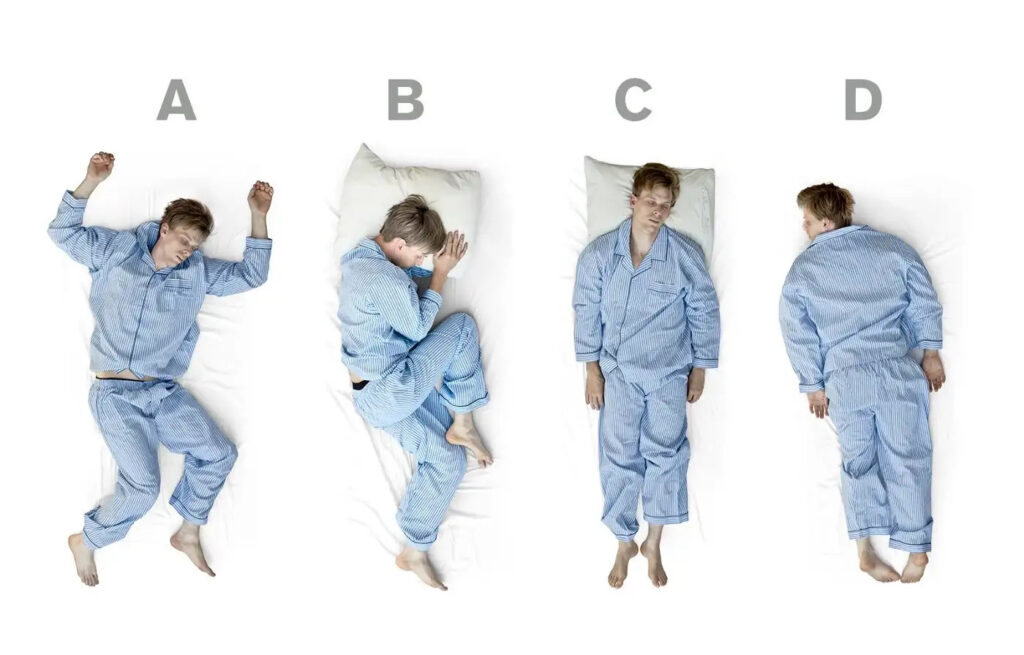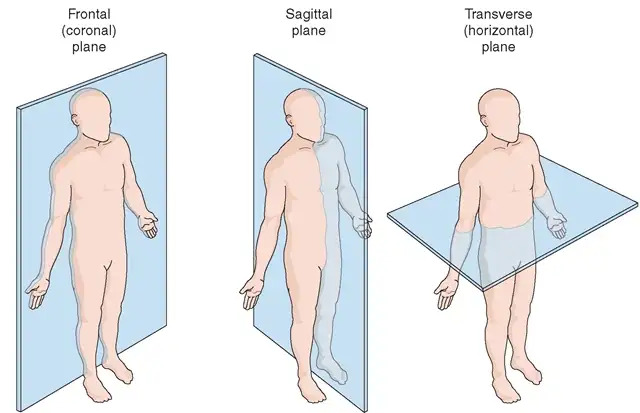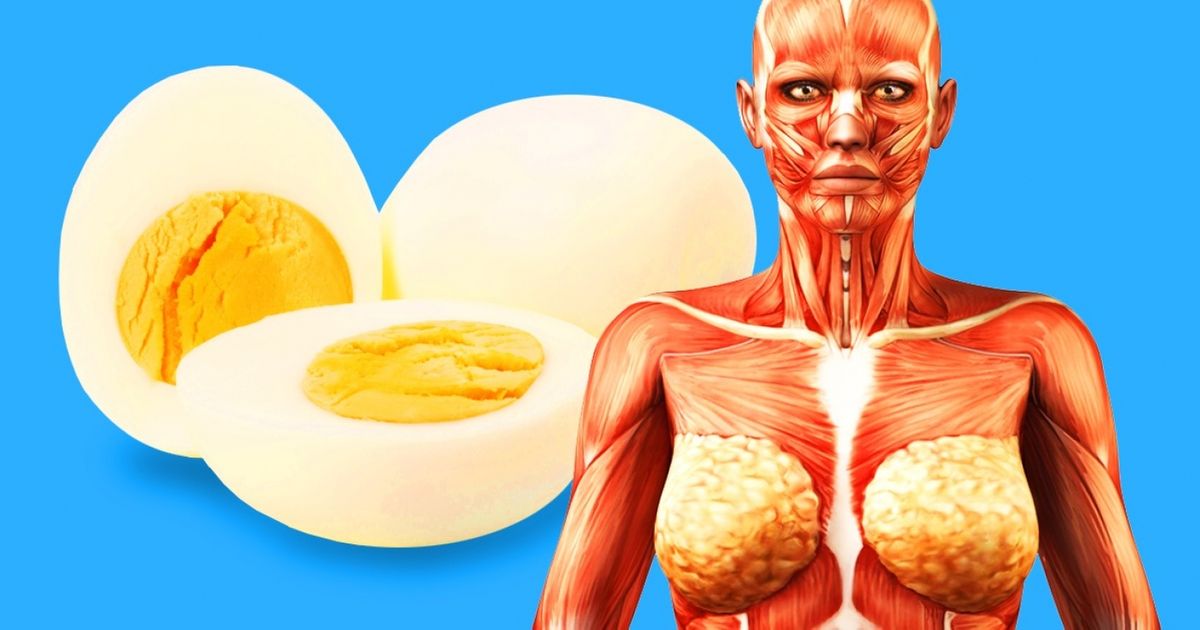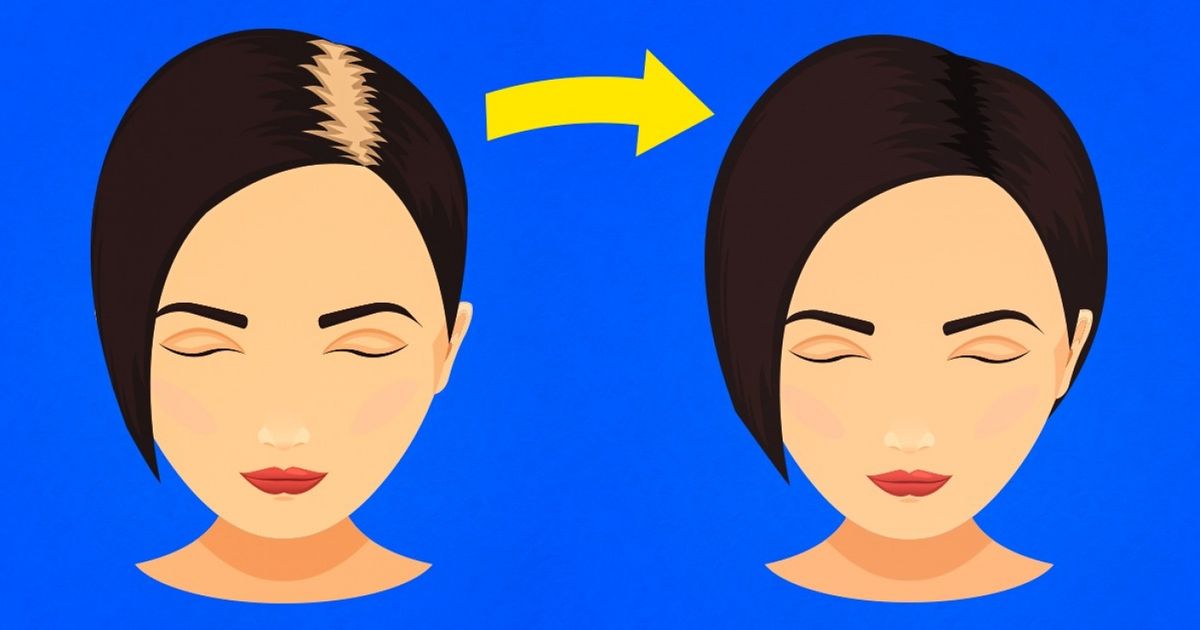In today’s fast-paced world, quality sleep is essential for maintaining overall health and well-being. Yet, many of us overlook one crucial factor that could be sabotaging our rest: our sleep position. Recent insights suggest that one common sleep position may be contributing to low oxygen levels, neck and back pain, and even long-term health risks. In this post, we’ll dive into how your sleep posture can affect your body, review the science behind these claims, and offer tips to optimize your sleep hygiene for better health. We’ll also explore alternative sleep positions, discuss the role of ergonomic pillows, and incorporate insights from trusted sources like Sleep Foundation and Mayo Clinic.

Sleeping on Your Back Causes Hypoxia (Low Oxygen): Hidden Risks Revealed
Sleeping on your back might seem like the most natural, neutral position for your spine, but emerging research indicates that this position could lead to hypoxia—or low oxygen levels in the body—especially for those who suffer from sleep apnea or other breathing issues. When you lie on your back, gravity can cause the tongue and soft tissues to collapse into the throat. This can restrict the airflow and decrease oxygen intake, potentially leading to fragmented sleep and other health complications.
Understanding Hypoxia and Sleep Apnea
Hypoxia occurs when the body or a region of the body is deprived of adequate oxygen supply. For individuals with sleep apnea, a condition where breathing repeatedly stops and starts during sleep, this can exacerbate existing risks. Low oxygen levels during the night have been linked to an increased risk of high blood pressure, heart disease, and even stroke. Research highlighted by the American Sleep Association shows that proper sleep positioning is critical in preventing these dangerous drops in oxygen saturation.
Impact on Overall Health
Chronic exposure to low oxygen levels may lead to daytime fatigue, cognitive impairments, and a weakened immune system. Understanding the underlying risks associated with back sleeping can help you make informed decisions about your sleep habits. If you experience persistent snoring or morning headaches, it might be time to reassess your sleep posture.
Scientific Insights and Recommendations
Several studies suggest that alternative sleep positions may improve oxygen flow. For instance, side sleeping has been shown to reduce airway obstruction in many individuals with sleep apnea. Experts at the Sleep Foundation recommend experimenting with side sleeping to enhance airway openness and overall sleep quality. If you’re unsure whether your sleep position is affecting your health, consider consulting a sleep specialist who can evaluate your breathing patterns and suggest adjustments.

The Pillow Fallacy: Rethinking Your Head Support for Better Sleep
Often, the focus on sleep quality centers on the mattress and sleep environment—but the humble pillow plays an equally vital role. The “pillow fallacy” refers to the common misconception that any pillow is sufficient to provide proper neck and head support. In reality, an inappropriate pillow can misalign your cervical spine, leading to chronic neck pain, headaches, and even poor sleep posture.
The Importance of Ergonomic Pillows
Ergonomic pillows are specifically designed to support the natural curvature of your neck and head. They help maintain proper spinal alignment regardless of your sleep position. Studies published by the Mayo Clinic emphasize the critical role that a quality pillow plays in reducing morning stiffness and improving sleep quality.

How Pillows Can Impact Your Sleep Quality
An ill-suited pillow can exacerbate issues like snoring and sleep apnea by forcing your head into a position that restricts airflow. Moreover, over time, poor head support can lead to chronic musculoskeletal pain. The right pillow can alleviate pressure points and distribute your head’s weight evenly, thereby reducing stress on your neck muscles and cervical vertebrae. For those experiencing persistent neck or shoulder pain, investing in a high-quality pillow could be a cost-effective solution compared to ongoing medical treatments.
Choosing the Right Pillow for Your Sleep Position
Selecting the ideal pillow depends on your preferred sleep position. For back sleepers, a medium-loft pillow is often recommended to maintain balance between support and comfort. Side sleepers might benefit from a thicker pillow to fill the gap between the ear and shoulder, while stomach sleepers typically require a very thin, almost flat pillow to avoid excessive neck strain. Websites like Sleepopolis offer detailed guides and reviews to help you choose the best pillow for your unique needs.
In Defense of Stomach Sleeping
In Defense of Stomach Sleeping: Unconventional Yet Beneficial?
Stomach sleeping is frequently criticized for causing neck and back pain due to the unnatural twist it forces on the spine. However, recent discussions in the sleep community suggest that, for some people, this position may offer surprising benefits—especially when it comes to reducing snoring and sleep apnea symptoms. While stomach sleeping is not without its drawbacks, it may be the lesser of two evils for certain individuals.
Benefits of Stomach Sleeping
One of the most compelling arguments in favor of stomach sleeping is its potential to reduce snoring. When you sleep on your stomach, the airway remains more open, which can help minimize the vibrations that cause snoring. For those battling sleep apnea—a condition that has a high CPC value in health-related searches—this sleep position might offer temporary relief. Additionally, some studies have shown that stomach sleeping can help alleviate symptoms of acid reflux, as gravity works in favor of keeping stomach acid in check.
Potential Drawbacks and How to Mitigate Them
Despite these benefits, stomach sleeping does come with notable disadvantages. The position can strain the neck by forcing it into a rotated position for extended periods, potentially leading to chronic pain and stiffness. Over time, this may contribute to spinal misalignment and exacerbate back pain issues. However, if you’re a dedicated stomach sleeper, there are ways to minimize these risks. For example, using a thin, flexible pillow or even foregoing a pillow altogether can help maintain a more neutral neck position. Incorporating stretching and strengthening exercises into your daily routine can also support your spinal health.
Who Should Consider Stomach Sleeping?
While stomach sleeping is not generally recommended for individuals with existing neck or back issues, it might be a viable option for those who struggle with snoring and sleep apnea. If you’re one of the many people who find it difficult to sleep on your side or back, experimenting with stomach sleeping—with proper adjustments—might improve your sleep quality. For more information on the pros and cons of different sleep positions, visit Sleep Education by the American Academy of Sleep Medicine.
Choosing the Ideal Sleep Position for Optimal Health
Finding the right sleep position is a personal journey that depends on your body type, existing health issues, and even your mattress and pillow choices. It’s essential to experiment and find the posture that allows you to achieve uninterrupted, quality sleep. Here are some practical tips to help you choose the best sleep position:
1. Evaluate Your Breathing Patterns
If you experience snoring or signs of sleep apnea, it may be time to reconsider sleeping on your back. Instead, try side sleeping to enhance airway openness and promote better oxygenation. This change can help you avoid the negative effects of hypoxia and improve your overall sleep quality.
2. Invest in Quality Bedding
High-quality mattresses and ergonomic pillows can significantly improve your sleep posture. Look for products that emphasize spinal alignment and offer tailored support for your chosen sleep position. Reviews on sites like Sleepopolis can guide you in selecting bedding that maximizes comfort and reduces health risks.
3. Incorporate Stretching and Relaxation Techniques
Incorporating gentle stretching or yoga before bed can help relieve muscle tension and promote better alignment. These practices not only ease the transition to sleep but also prepare your body to maintain a healthy posture throughout the night.
4. Consult with a Sleep Specialist
If you’re experiencing persistent sleep issues or chronic pain, consulting with a sleep specialist might be necessary. They can provide personalized recommendations based on your unique health needs and help you develop a comprehensive sleep improvement plan.
5. Monitor Your Sleep Environment
Creating a conducive sleep environment is crucial. Ensure your bedroom is cool, dark, and quiet, and try to maintain a consistent sleep schedule.
The Role of Technology in Improving Sleep Posture
In recent years, wearable technology and smart bedding have emerged as innovative tools to monitor and improve sleep quality. Devices like sleep trackers can provide detailed insights into your sleep patterns, including your preferred sleep position, duration of REM sleep, and even instances of low oxygen levels. Utilizing these technologies can empower you to make informed decisions about your sleep habits.
Wearable Sleep Trackers
Modern wearable devices are designed to monitor various aspects of your sleep. These gadgets can detect abnormal breathing patterns, track movements during sleep, and even alert you if your sleep position might be contributing to health issues. Integrating data from these devices with advice from professionals can help you refine your sleep posture over time. Reviews and expert analyses on platforms such as TechCrunch provide valuable insights into the latest sleep tracking technologies.
Smart Bedding Solutions
In addition to wearables, smart mattresses and pillows have entered the market, promising to adjust to your body’s needs in real-time. These advanced products often come equipped with sensors that monitor pressure points and adjust firmness levels accordingly, ensuring that your spine remains aligned throughout the night. Investing in such technologies can be particularly beneficial if you suffer from chronic back or neck pain.
Practical Steps to Transition to a Healthier Sleep Posture
Changing your sleep position may seem challenging at first, especially if you have long-established habits. However, with patience and persistence, you can gradually adjust your posture to reap the benefits of improved sleep quality and overall health. Here are some actionable tips:
Gradual Adjustment
If you’re accustomed to sleeping on your back, try transitioning slowly by propping yourself up with a body pillow. This can help encourage side sleeping while still providing comfort and stability. Over time, reduce the reliance on pillows until you can comfortably maintain the new position throughout the night.
Creating a Sleep Routine
Establishing a consistent sleep routine can help your body adjust to new sleep positions. Aim to go to bed and wake up at the same time every day, and include a relaxing pre-sleep ritual such as reading or meditation. This consistency not only improves your sleep quality but also reinforces positive sleep habits.
Monitoring Progress
Keep a sleep diary to track changes in your sleep quality and note any improvements in daytime energy levels or reductions in pain. Over several weeks, this record can help you understand the benefits of changing your sleep position and guide further adjustments as needed.
Final Thoughts: Prioritize Your Sleep for a Healthier Life
Your sleep posture plays a critical role in your overall health. The potential dangers of sleeping on your back—such as hypoxia and disrupted sleep—should not be underestimated, especially if you already suffer from conditions like sleep apnea. Similarly, the choice of pillow can either support or sabotage your efforts to achieve restorative sleep. Even stomach sleeping, despite its controversial reputation, may offer benefits for certain individuals when managed correctly.
Incorporating these insights into your daily routine can pave the way for better sleep hygiene, improved oxygen levels, reduced neck and back pain, and overall enhanced well-being.
Remember, quality sleep is the foundation of a healthy life. By reassessing your sleep position and optimizing your bedding choices, you can significantly improve your health outcomes. If you’re experiencing persistent sleep issues or chronic discomfort, consider seeking professional advice from sleep specialists and healthcare providers. Trusted resources such as Mayo Clinic and Sleep Foundation offer a wealth of information and guidance to support your journey toward better sleep.
Ultimately, prioritizing your sleep is one of the best investments you can make for your long-term health. Take the time to analyze your current habits, experiment with different positions, and incorporate ergonomic solutions into your nightly routine. Small changes can lead to big improvements, ensuring that you wake up each morning feeling refreshed, energized, and ready to tackle the day.
By following the practical steps outlined in this post, you can transform your sleep experience, mitigate potential health risks, and enjoy the benefits of a well-rested body and mind. Embrace the power of informed sleep choices and remember: a healthier life begins with a single, well-aligned sleep position.
For further reading and expert advice, explore additional resources such as Harvard Health Publishing and American Academy of Sleep Medicine. Your journey to better sleep starts tonight—invest in your rest, and your body will thank you in the long run.









